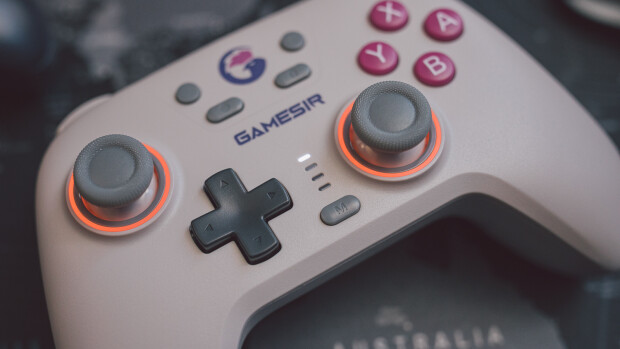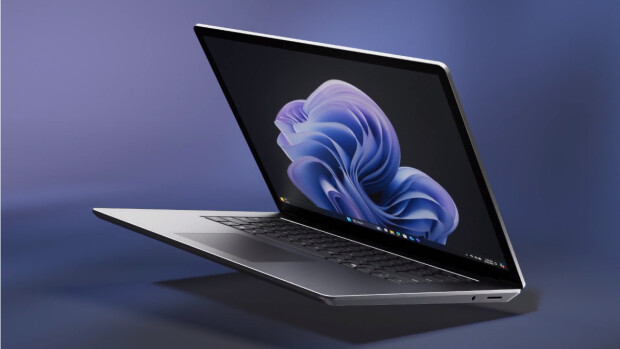
Back in January of 2016, Nvidia launched the GeForce GT 710 graphics card, an entry-level GPU. The company made some pretty big claims about it at that time, stating that the GT 710 was capable of being up to 10X faster than Intel integrated graphics, and gaming on it too was 80% faster.
Here's the full quote of the performance claims for the Nvidia GT 710 that the firm for some reason decided to completely wipe out from its website later on:
GeForce GT 710 Graphics Card
Make your entire PC experience faster with the new NVIDIA® GeForce® GT 710 dedicated graphics card. Now, you can enjoy up to 10x better performance than integrated graphics in all your favorite PC applications. Gaming is even up to 80% faster, while delivering rock-solid reliability and stability with GeForce Experience
Nvidia's add-in-card (AIC) partner EVGA still has its article up with images of some of the variants that are offered by the vendor.

Verifying Nvidia's original claim of being 80% faster than Intel HD graphics is a bit difficult as Nvidia doesn't specifically state which Intel IGP it is referring to in its comparison. Perhaps the company is denoting the 2010's Ironlake core that was simply called "Intel HD graphics" and if that were the case, then the GT 710 was not at all impressive as Intel already had much faster integrated graphics processors available by 2016, when the GT 710 arrived on the scene.
Here's a comparison of the GeForce GT 710 against Intel's HD 500 series graphics that were already available when the GT 710 launched.
| GPU | Time Spy |
|---|---|
| GT 710 (Kepler) | 194 |
| Intel HD Graphics 510 | ~180 |
| Intel HD Graphics 520 | 320 |
| Intel HD Graphics 530 | 390 |
Hence, the GT 710 was barely faster than the entry-level HD 510, at least when comparing a synthetic benchmark score. So, the 80% faster gaming claim was probably only true when compared against the 2010 Intel graphics.
And since Nvidia was pitching the GT 710 as a viable upgrade to the 2010 Intel HD graphics, then it is noteworthy here that there already existed other cards from both AMD and Nvidia, like the Radeon R7 240 / 250, or the GT 730/740, that were already doing a far better job than what the GT 710 was offering in 2016.
And now in 2022, the story is worse as the GT 710 gets handily beaten by Intel's lowest tier integrated graphics, the UHD 710. In fact, in more modern titles like in Red Dead Redemption 2, it's a total knock out for the GT 710. And compared to the AMD's integrated graphics, it's a bloodbath.
You can see the results for the GT 710 vs the Intel UHD 710 in the images below (via RandomGaminginHD on YouTube).
 |
 |
 |
While a new product beating an older one is not something that should be of surprise, the GT 710 is actually still one of the best selling GPUs in the market, and has far outsold some of the much more capable graphics cards like the Radeon RX 550, which launched a year and half later. And the GT 710 is not a dirt cheap GPU either as the card seems to retail around 50-70$ on Amazon US, among other places. And to say the GT 710 is just a 2016 product would not be fully correct as Asus even launched a new GT 710 model just a couple of years back and most of the GT 710 models are still actively sold around the world.
The latest March Steam hardware survey result shows that the Nvidia GT 710 still holds 0.35% of market share which is quite significant.
And the Steam March 2022 survey data is actually a far less favorable one for the GT 710. Data from other places like UserBenchmark and PassMark show the number of GT 710s sold over its lifetime far outweighs the RX 550's.
On the left, we have the UserBenchmark data that show more than 10 times GT 710s compared to RX 550s were benchmarked (176,948 vs 16,942). Meanwhile, the PassMark data on the right shows more than five times GT 710s compared to RX 550s (5,160 vs 929).
Why such high sales volumes?
It is possible that Nvidia and its AIC partners dump large numbers of GT 710 onto retailers which is why it is often seen that such retailers sell these cards to customers who are not informed enough to know that they are better off buying something better.
There are also times when faster integrated GPUs are paired up with a GT 710, a practice that is essentially ripping off an uninformed customer.
Some GT 710s are even worse!
To make matters worse, there are also a couple of variations of the GT 710. First there is the more common Kepler variant that comes with 192 CUDA Cores. However, there is also a far worse, gimped Fermi variant that only has 48 CUDA Cores. Not only is this much slower, it also has a much higher TDP of 29W compared to 19W on a Kepler-based GT 710. All GT 710s are labelled the same and there's almost no way of telling the difference from a quick glance at the packaging.
Here, one may argue that the low 19W power consumption figure is a big selling point of the card but seeing how most PCIe slots can deliver 75W of power, it should really be a non-issue for most PCs.
What should you buy instead?
Of course, if you shouldn't buy a GT 710, then what can you instead consider buying? Below, I recommend a list of discrete graphics cards that you can get which are much better investments than the GT 710. I also put in the 710 itself, the Kepler one, so you can gauge the performance yourself. I have also put in recommended prices for the cards based on the current market situation.
| GPU | Time Spy score | My Recommended Price |
|---|---|---|
| GT 710 (Kepler) | 194 |
$40 max (Typical price: $50) |
| GT 730 (Kepler) 2GB GDDR5 | ~410 | $60 |
| GT 1030 GDDR5 | 1089 | $90 |
| RX 550 2GB | 1191 | $100 |
| RX 550 4GB | 1191 | $110 |
| RX 550 640SP 2GB | ~1340 | $115 |
| RX 550 640 SP 4GB | ~1340 | $130 |
| RX 460 2GB | 1748 | $130 |
| RX 460 4GB | 1748 | $150 |
| RX 560 2GB | 1840 | $145 |
| RX 560 4GB | 1840 | $170 |
| GTX 1050 2GB | 1743 | $145 |
| GTX 1050 3GB | ~2000 | $155 |
| GTX 1050 Ti | 2344 | $185 |
| Intel DG1 80EU | 1630 | $135 |
| Intel DG1 96EU | 1824 | $165 |
In the above table, anything up to the RX 550 640SP will comfortably run without supplementary PCIe power connectors and you get up to eight times more performance in modern games compared to a GT 710.
Keep in mind that these prices have been suggested based on GPU market prices at the time of writing. As such, all of these graphics cards are much better value for money than the rather inept GT 710, which is why, as mentioned in the above table, I'd never recommend the GPU for more than $40 no matter the variant.
Any silver lining?
Frankly speaking, there isn't any for the GT 710, unless you are running an old system based on a 2000s Pentium or an Athlon perhaps. That's because the slightly more expensive GT 730 GDDR5 version (in the above table) is a much better performer and even a decade old processor won't bottleneck the 730. The GT 730 really is the minimum one should go for in case of an old, slow processor system.
As a multi-monitor driver? Maybe, but again, all other graphics cards in the above table can do that too.
In conclusion, at all costs avoid the GT 710 and if anyone you know is looking to purchase the card, ask them to stay away from it too. It gets destroyed by the slowest current-gen integrated graphics and is also effortlessly beaten by most half decent budget discrete GPUs. Driver support for Kepler cards also ended last year which means the software side of the GT 710 is not its strength either.
The GT 710 in 2022 is, relatively speaking, a good for nothing card that somehow still manages to stay relevant due to the sales it generates. The only way to stop it now is to stop buying it so that Nvidia finally is forced to kill it off once and for all.




















24 Comments - Add comment